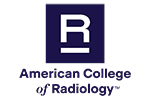Soft-Tissue Masses
Soft-tissue masses are lumps or bumps caused by the growth of cells. Most soft-tissue masses are harmless, although some may be cancerous. Doctors use imaging tests to help diagnose soft-tissue masses.
Superficial (close to the surface) soft-tissue masses are often able to be seen or felt by touch. Initial imaging tests using x-ray or ultrasound (US) are usually appropriate. For nonsuperficial masses located deeper in the body, or for masses that are in areas of the body that are difficult to evaluate, x-ray is usually appropriate as the initial imaging test. US may also be appropriate.
If your doctor is unable to diagnose the soft-tissue mass from an initial x-ray or US, further testing using MRI without and with intravenous (IV) contrast or MRI without IV contrast is usually appropriate. CT without contrast may also be appropriate. In the specific scenario of bleeding (hemorrhage) from the mass, MRI without and with IV contrast or CT without and with contrast is usually appropriate. CT angiography with contrast, MR angiography with contrast, CT with contrast, CT without contrast, and a nuclear medicine test called FDG-PET/CT, short for fluorodeoxyglucose-positron emission tomography/CT, may also be appropriate.
For individuals who are unable to have an MRI due to a noncompatible device or have a metal within the body (which can limit MRI evaluation), CT without and with contrast and CT with contrast are usually appropriate. CT without contrast and FDG-PET/CT may also be appropriate.
This page was reviewed on July 10, 2023


